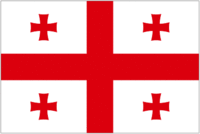
03 Apr Georgia: do not enshrine homophobia in the constitution
Last week, Georgia’s Prime Minister Irakli Garibashvili became the latest European politician to propose a ban on same-sex marriage in the country’s constitution.
Garibashvili introduced an amendment to constitution at the same time that new anti-discrimination legislation was introduced, arguing that: “Since there may be different opinions on the issue and there should be no speculations around this topic, I am proposing an initiative to insert a clause in the constitution, defining that family is a union between man and woman.”
Over the past years, the European continent has seen the introduction of various constitutional bans to same-sex marriage, including three EU members states namely Croatia, Hungary and Latvia. In 13 of European countries, the constitution de facto bans marriage equality by defining marriage to a union between a man and a woman.
ILGA-Europe’s Executive Director Evelyne Paradis: “Constitutional bans are highly symbolic measures to enshrine discrimination in law and to prevent debates on recognition for same-sex couples. Very few of the countries which ban marriage equality in their constitutions grant any form of rights to same-sex couples. So these bans are largely tools used by those who oppose equality for LGBTI people to institutionalise discrimination against LGBTI people. By doing so, political leaders and politicians only fuel homophobia and give further credence to groups – especially religious extremists – who use an anti-gay rhetoric to gain influence in society.”
ILGA-Europe calls on the Georgian government to withdraw the proposal and to continue on the right path by ensuring equal treatment before the law for all citizens. “This is the time that Prime Minister Garibashvili should curtail the hostile view in society towards the LGBTI people instead of giving it wings,” Paradis said.
According to our Rainbow Europe’s Index (May 2013), Georgia came 30th among 49 European countries in terms of laws and policies affecting the human rights of LGBTI people.
Source: ilgaeurope.org



